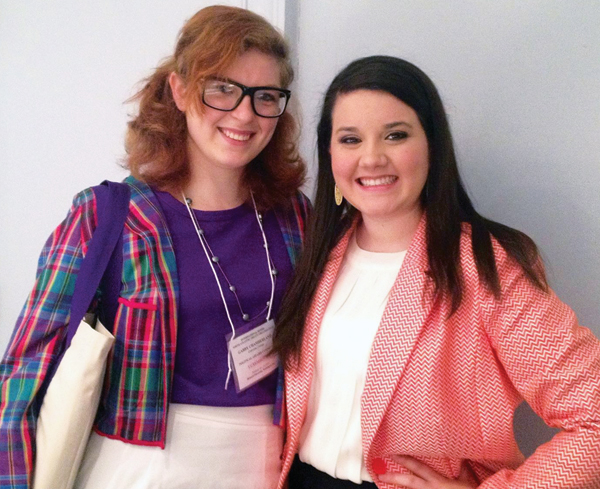
How do you say “Qatar”? Americans are divided. Most of us say “Kuh-TAR,” but the correct pronunciation is closer to “cutter.” Gabriella (“Gabby”) Chamberland knows that. She’s going there at the end of this month.
The 2012 Cornwall graduate won’t be an exchange student or a tourist. She’s on a fact-finding mission for the National Council on US-Arab Relations. She and Prof. Joe Dunn will be representing Converse College. After an orientation in Washington, D.C., they will be interviewing government and non-government officials in Qatar.
“Women’s rights are pretty good in Qatar,” Miss Chamberland explains. “We’re trying to see if that can be transposed to other Mid-Eastern nations.” She and Prof. Dunn will have about a week and a half to form an opinion.
When they return, Miss Chamberland will describe her findings on her blog and make presentations at symposiums. Her involvement in the program is something she couldn’t have predicted a few years ago.
“It was all by happenstance,” she admitted during a weekend visit in Cornwall. “I stumbled into it.”
Converse College in South Carolina has a strong reputation for political science and for programs modeled after NATO and other international alliances. But that’s not what attracted the Cornwall graduate.
She wasn’t overly anxious to attend a small all-female college in the south. But Converse offered her a scholarship to play soccer. Once she arrived, she developed new interests. As a result, she skipped soccer this fall to take part in an intensive program on International Relations at Bard University.
She had a fellowship for a study visit to Palestine, but that was changed when the area became too dangerous. She has other concerns about her trip to Qatar. “It’s going to be really hot,” she says, “and I’ll have to wear formal clothes.”
Foreigners don’t have to dress like the women who live in the country, but a woman in casual clothes would not be well-received. As for the traditional veil, the Hijab that covers the head and chest, Miss Chamberland suggests it can be perceived in two different ways. Some women may feel it’s degrading while others might say, “You’re seeing me for who I am and not for my hair.”
The former soccer goalie is getting close to graduation. She plans to study Arabic and she’s interested in the Middle East. “There’s a lot going on there,” she said. “It’s a really good place to go.”
